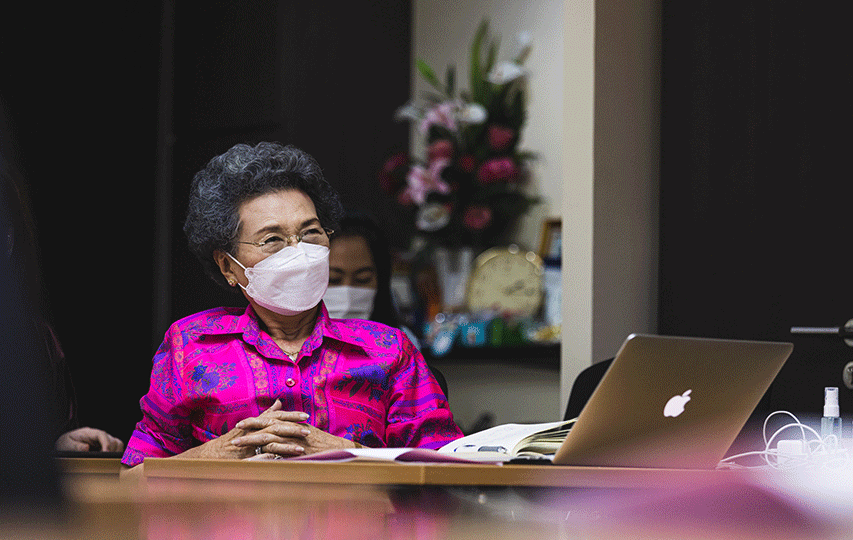When the internet was still new in Thailand 20 years ago, Suteera “Jiap” Chamlongsupalak held workshops to help people understand their home and office routers. That was part of her job as an instructor at CS Loxinfo, one of Thailand’s very first internet providers.
Most people were clueless about things like modems, and her workshops welcomed students of all ages and backgrounds. Jiap was well-versed in the then-modern tools from her master’s degree in Training and Development at the University of Wisconsin.
Among her keen students was CS Loxinfo CEO Chatchanee Chatikavanij herself, who wanted Jiap to devise a class for her — a class not for children or students but for her friends around the age of 70.
“We learned that none of her friends could understand the lessons. Most of them were sitting there for six hours doing nothing as they couldn’t keep pace with the younger students,” Jiap recalled. “It was like we entirely skipped the most important step to help them use the device properly. Some of them didn’t even know how to turn on the computer.”
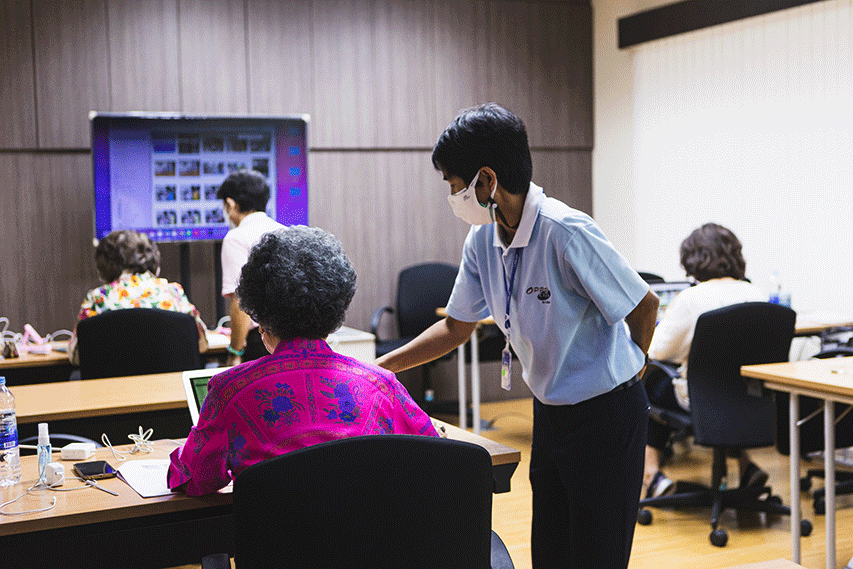
After noticing the glaring errors in her instruction, Jiap took several months to revise her lesson plans, and the key to all this, Jiap said, is to embrace her students for who they really are.
“Teaching older people requires more than just patience. We need to understand their learning styles and not be too quick to assume what works or doesn’t work for them.”
Using computers wasn’t as easy then as it is now, Jiap explains, and the complex, unfriendly interfaces posed an extra challenge for these older students with young hearts.

“Something that may sound common to you, like moving the mouse cursor, could take them three hours to accomplish. One second, you will see them lifting the mouse off the desk completely. And the next moment, you will see them steering the mouse off the desk’s edge.”
As an educator, Jiap knew bigger classes meant she couldn’t spread her attention to all of her students. Jiap shrank the size of the workshop, and two other teaching assistants stepped in to lend their eyes and ears. The session hours were also cut down to digestible sizes to match their needs.
This pilot class held in 2000 would become the face of what’s known as OPPY (Old People Playing Young) Club today. The courses, which started off as basic email, now cover over 60 skills, ranging from basic photography and ordering food online to professional modules like video editing and filmmaking. In the last two decades, the club has provided services to more than 5,000 members and counting.
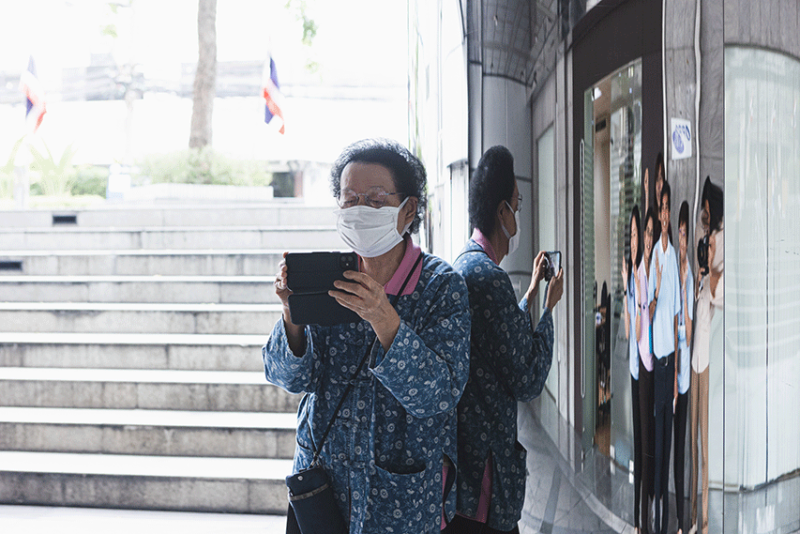
The secret ingredient to OPPY’s success, however, has little to do with their training. Just like any other pedagogical strategy, Jiap views teaching older adults the same as any other age group: They all learn better without stress.
Instead of relying on memorization and reprimanding them when they fail, OPPY courses involve activities to promote conceptual understanding of the tools. Each course is designed to form a thread of understanding, and by connecting those threads, it facilitates learning.
“The last thing we would do here at OPPY is to have them to remember our lessons,” Jiap said, pointing out how most of the members may have already been under the pressure of being taught the same thing by their children at home. “So we always assure them they don’t need to memorize anything. Each course will hand out specific manuals containing infographic diagrams for them to follow, so they won’t miss anything even if they do.”
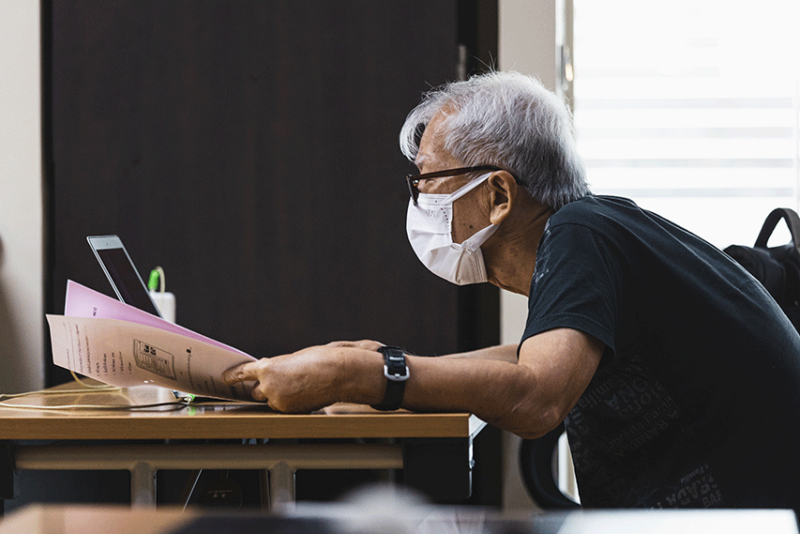
With her 22 years of service as head principal, Jiap says the school’s priority may not be all about learning. “It’s about maintaining purpose and meaning in life through having good company,” she explained.
“Learning is just an added benefit; it provides both excuses and opportunities for our members to escape from the confinement of their home and foster meaningful connections and have real conversations with other people of their own age. As long as they can have a good laugh, our goals are completed. And sometimes this laughter can act like a medicine.”
Yongyuth Napasab, a 94-year-old frequent member of OPPY, paid several visits and attended almost every class held at OPPY. His vitality caught the attention of medical groups and Mahidol University where he would give inspirational speeches to elderly-care focused forums with OPPY.
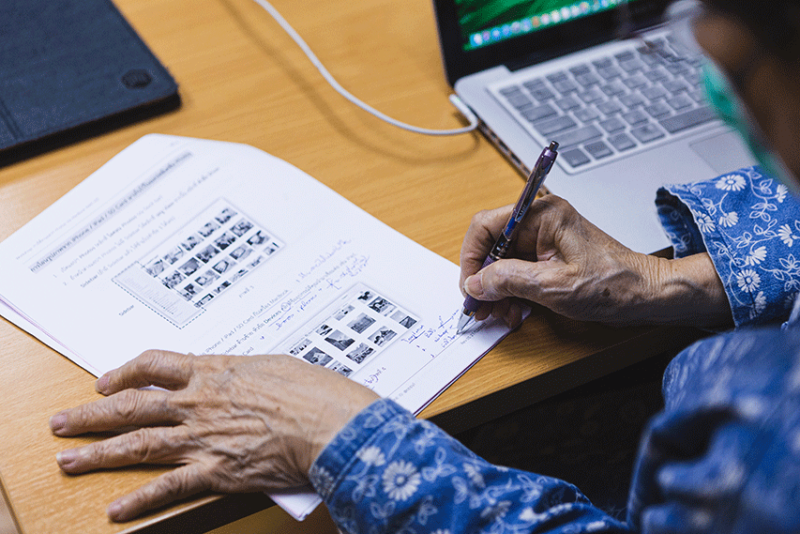
During the lockdown, however, Yongyuth became emotionally withdrawn. His family told the club that he stopped interacting with people almost completely and just returned to daily naps. When the school could operate normally in February 2022, his family took Yongyuth to attend the classes at OPPY Club again.
“It took months before he could open up to us again, but we just held his 94th birthday party here at our club,” Jiap said.
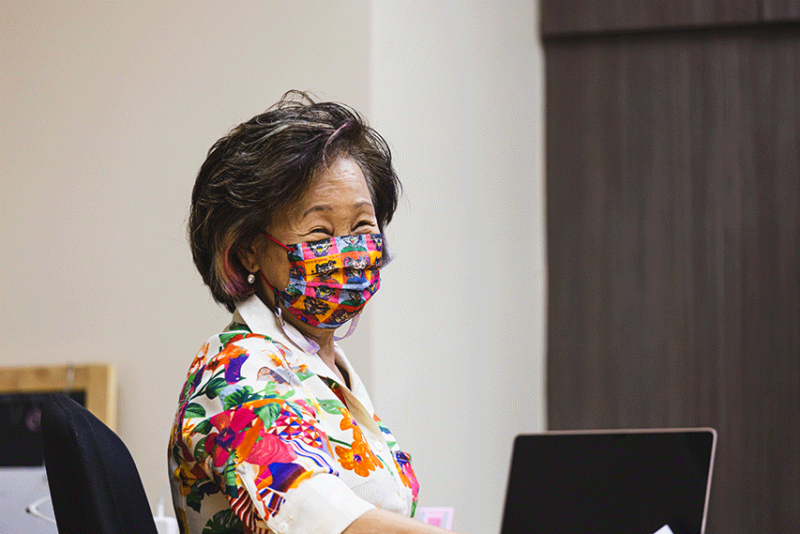
Another case, Jiap said, is an unnamed woman who suffered from a stroke. She was one of the club’s regular members, but suddenly disappeared. OPPY paid a visit to her home address and learned of her condition.
“We met her while she was rehabilitating at a private hospital. At the time she had to use her cane to help her balance. As we didn’t want to let her plunge into inactivity, we invited her to come and play with us and her fellow club members.”
Within three months, she showed signs of recovering — something Jiap believes to be the result of classroom stimulation. The woman could use more of her right side and is now a big fan of TikTok culture.
When asked about the effectiveness of OPPY’s activities, Jiap says these engaging activities can help to some extent but also need to be under strict supervision.
“If we place too much focus on technology, we can also overwhelm the online-life balance,” she said. “And some of our members can also be prone to game addiction, which may pose a detriment to their health.”
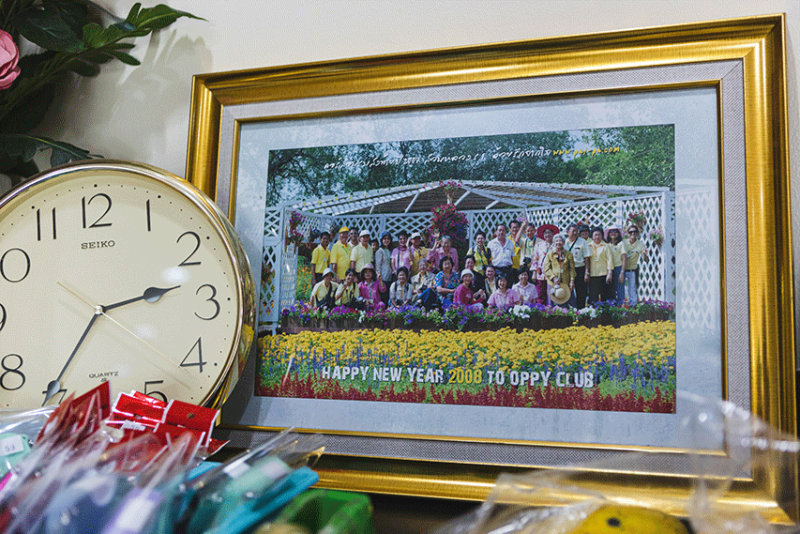
To combat this, Jiap and the team have devised classes where senior students can put their phones, including a painting class to enrich their creativity and help them gain confidence in expressing their thoughts and feelings. And above all, it’s designed to help them focus with the now.
“One of our club members quit because he felt overwhelmed by the courses focusing on technology,” Jiap said. “When he learned of our new painting courses, he was willing to give another try. After several courses, he told us that the doctor saw major improvements in his concentration and wanted him to continue.”
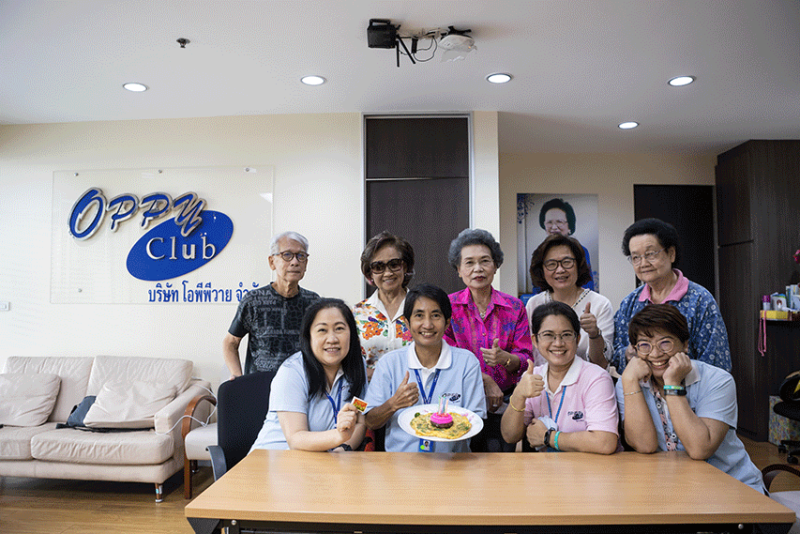
At one of the workshops in early May, shouting and laughter echoed through OPPY’s halls. Some students competed for Kru Jiap’s attention; some acted as class representatives to help their classmates who couldn’t keep pace. Some pranked the TAs by taking photos and editing her portrait. But one thing is for sure, senior or not, they were all just happy students enjoying life.
One student humorously remarked that one attentive student should become the new class representative.
“Maybe I will, in my 90s,” she said.
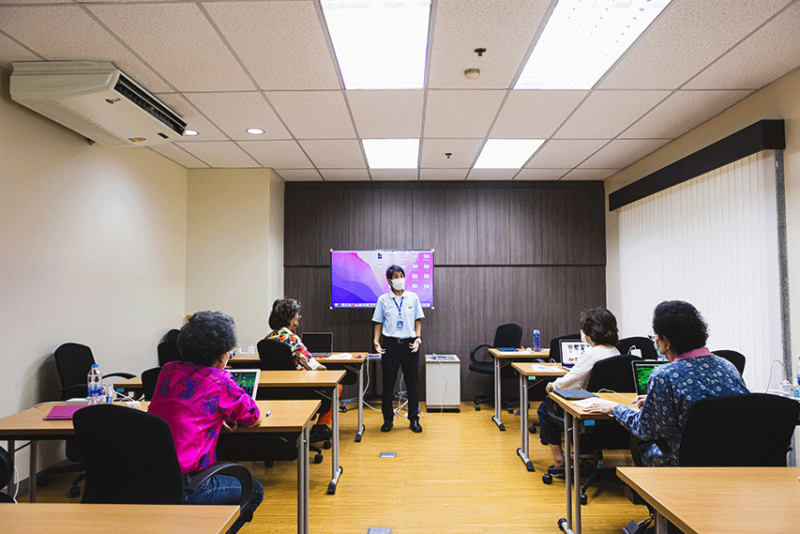
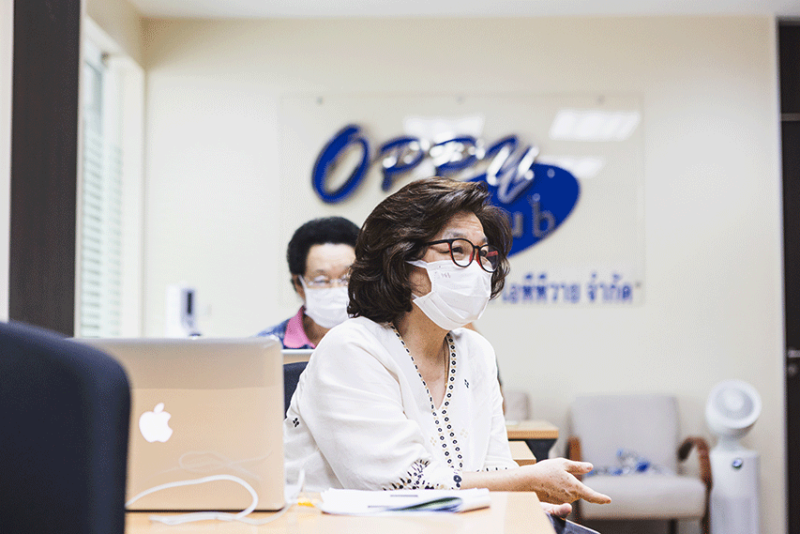
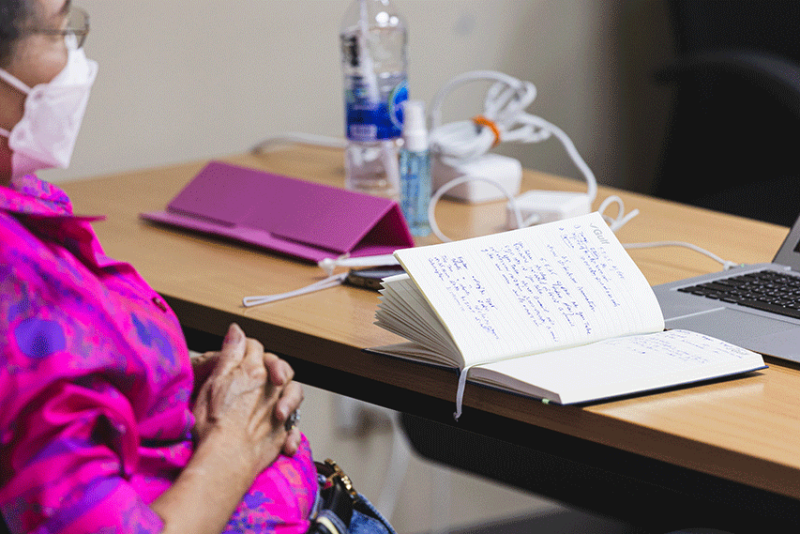

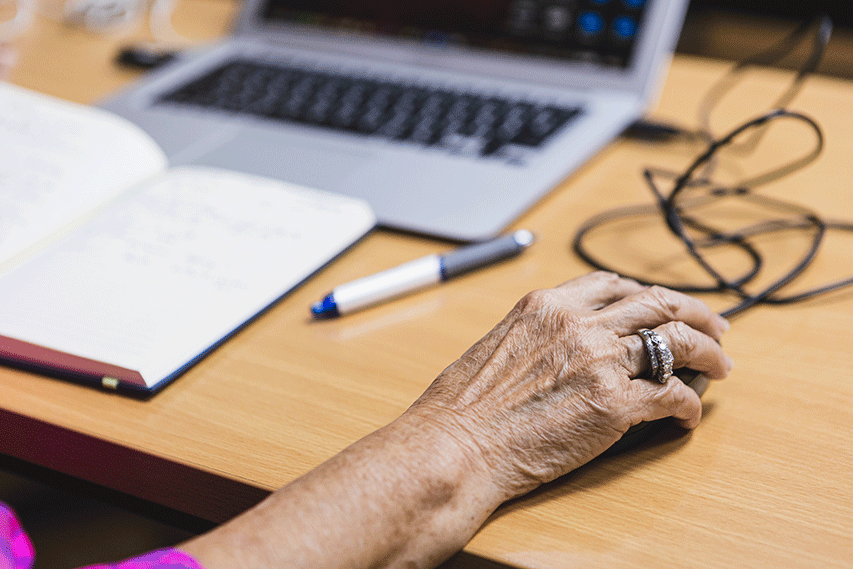

All photos: Poonsawat Sudtama / BK Magazine
